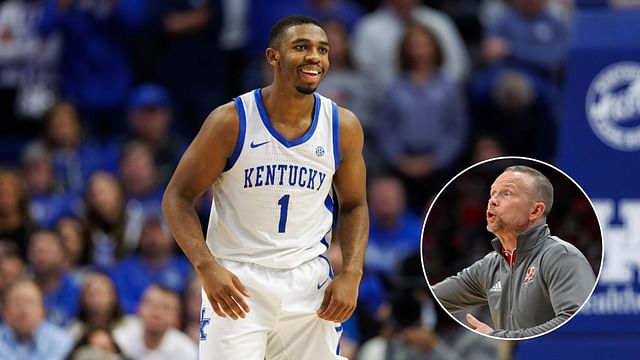Rickey Gibson’s decision to transfer from Tennessee football has raised serious questions about the impact his departure will have on the Vols.
Tennessee has already lost several key players to the transfer portal this offseason, and Gibson’s move adds to their growing list of concerns. The loss of a starting cornerback, particularly one who played a significant role in the defense, leaves the team with yet another gap to fill.
Gibson was an outside cornerback for Tennessee this past season and played a crucial role alongside Jermod McCoy, who had an outstanding season before suffering an ACL injury. His ability to contribute effectively to the defense made him a valuable asset, which is why his decision to transfer has surprised many fans and analysts. Given the current state of Tennessee’s roster and the uncertainty surrounding McCoy’s recovery, Gibson’s departure could be one of the most significant setbacks the Vols have faced in this transfer window.
The Statistical Impact of Gibson’s Departure
Looking at Gibson’s numbers, it’s clear that he was a key contributor to Tennessee’s defensive success. Last season, he recorded three pass deflections and forced a fumble, proving his ability to make plays on the field. While those stats may not seem overwhelming at first glance, his overall impact goes beyond just numbers. Gibson was an integral part of a defensive unit that performed better than it had in previous years under defensive backs coach Willie Martinez.
For Tennessee, losing a defensive back of Gibson’s caliber is particularly concerning because he was set to return as a starter next season. His presence provided stability in the secondary, a unit that has struggled in past seasons. Without him, the Vols now have an open spot that must be filled, either by an incoming transfer, a young player stepping up, or a coaching adjustment. However, the question remains—will Tennessee be able to replace him with someone as reliable?
The Bigger Picture: How This Affects Tennessee’s Roster
The timing of Gibson’s departure could not be worse. Tennessee is already dealing with several losses due to the transfer portal, and his decision to leave only adds to the team’s growing concerns. One of the biggest factors at play is the injury to Jermod McCoy, who suffered an ACL tear last season. While the hope is that McCoy will return near the start of the upcoming season, there is no guarantee that his recovery will go as planned. If McCoy is unable to play, Tennessee will be left even more vulnerable in the secondary.
Gibson’s exit also raises questions about Tennessee’s ability to retain key players. With so many athletes opting to transfer, it is worth considering whether there are deeper issues within the program that are pushing players to look elsewhere. While the transfer portal has become a normal part of college football, losing a starting cornerback who was expected to play a crucial role next season is not an ideal situation for any team, especially one hoping to improve defensively.
What Tennessee Must Do Next
With Gibson now out of the picture, Tennessee must quickly address the hole in its defense. There are a few possible ways the team can move forward:
- Looking to the Transfer Portal – Just as Tennessee has lost players to the portal, it could also use it to find replacements. Bringing in an experienced cornerback from another program could help fill the gap left by Gibson. However, securing a high-quality replacement will be difficult, especially at this stage of the offseason.
- Developing Young Talent – Tennessee could turn to younger players on the roster and give them a chance to step up. While this comes with risks, especially given the experience level needed at cornerback, it may be the best long-term solution.
- Adjusting the Defensive Strategy – If Tennessee cannot find an immediate replacement, the coaching staff may have to tweak the defensive approach. This could involve shifting other players into new roles or implementing schemes that compensate for the loss of a key defensive back.
Regardless of which direction Tennessee chooses to go, there is no denying that replacing a starting-caliber cornerback will be a challenge.
Final Thoughts: How Big Is This Loss?
When looking at the broader context of Tennessee’s offseason, it’s clear that Gibson’s departure is a significant blow. The Vols were already in a difficult situation due to player losses, and now they must deal with the unexpected loss of a projected starter.
While some may argue that Tennessee will find a way to replace him, the reality is that losing a talented defensive back—especially one who played a key role in the team’s best secondary performance in years—will not be easy. Adding to the concern is McCoy’s injury situation, which further complicates Tennessee’s defensive outlook.
Ultimately, the impact of Gibson’s transfer will depend on how well Tennessee is able to adjust. If they can find a suitable replacement or adapt their strategy effectively, they may be able to minimize the damage. However, if they struggle to fill the gap, this loss could be one of the defining moments of their offseason.
For now, Tennessee fans are left wondering: was this an avoidable loss, and what does it say about the program’s ability to keep key players? Only time will tell how much of an impact Gibson’s departure will truly have.



